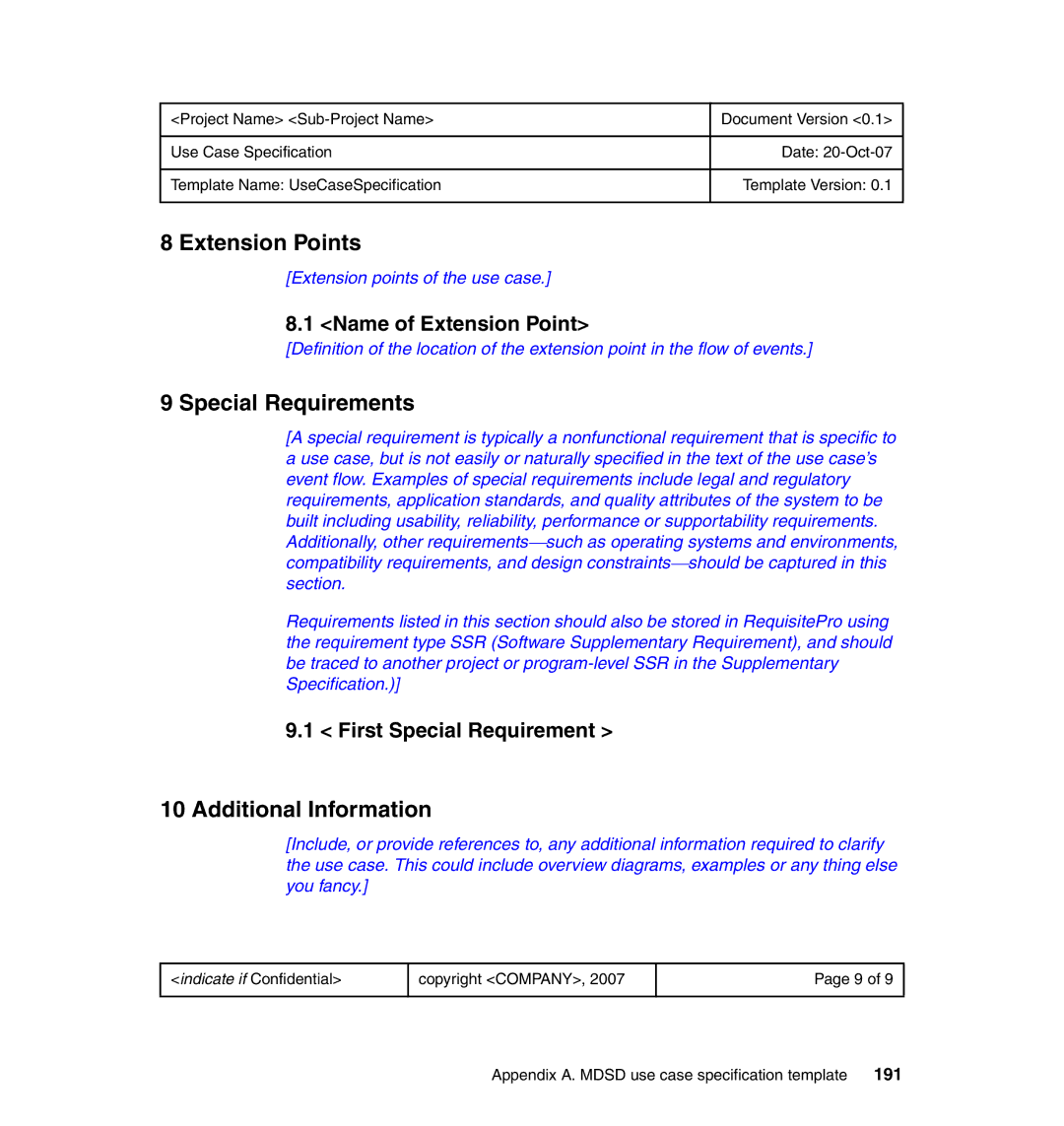<Project Name> | Document Version <0.1> |
|
|
Use Case Specification | Date: |
|
|
Template Name: UseCaseSpecification | Template Version: 0.1 |
|
|
8 Extension Points
[Extension points of the use case.]
8.1 <Name of Extension Point>
[Definition of the location of the extension point in the flow of events.]
9 Special Requirements
[A special requirement is typically a nonfunctional requirement that is specific to a use case, but is not easily or naturally specified in the text of the use case’s event flow. Examples of special requirements include legal and regulatory requirements, application standards, and quality attributes of the system to be built including usability, reliability, performance or supportability requirements. Additionally, other requirements⎯such as operating systems and environments, compatibility requirements, and design constraints⎯should be captured in this section.
Requirements listed in this section should also be stored in RequisitePro using the requirement type SSR (Software Supplementary Requirement), and should be traced to another project or
9.1 < First Special Requirement >
10 Additional Information
[Include, or provide references to, any additional information required to clarify the use case. This could include overview diagrams, examples or any thing else you fancy.]
<indicate if Confidential>
copyright <COMPANY>, 2007
Page 9 of 9
Appendix A. MDSD use case specification template 191
